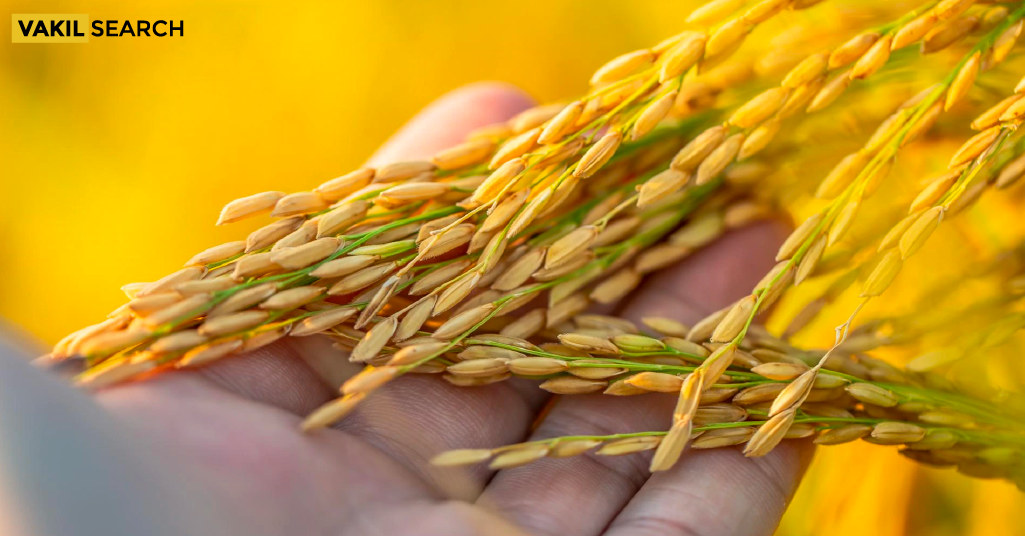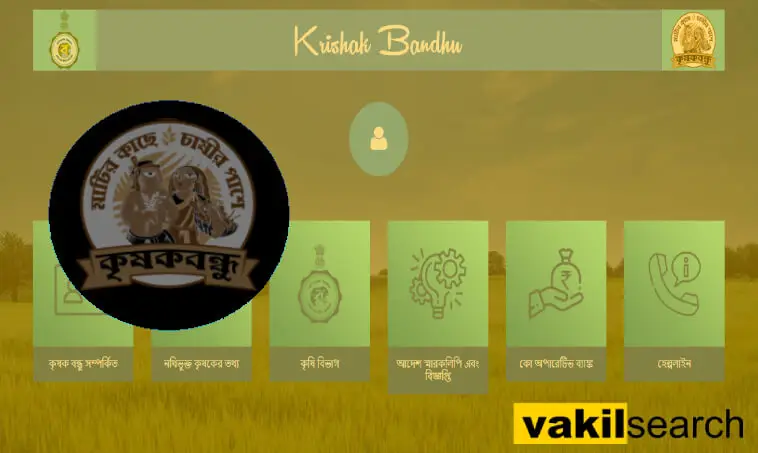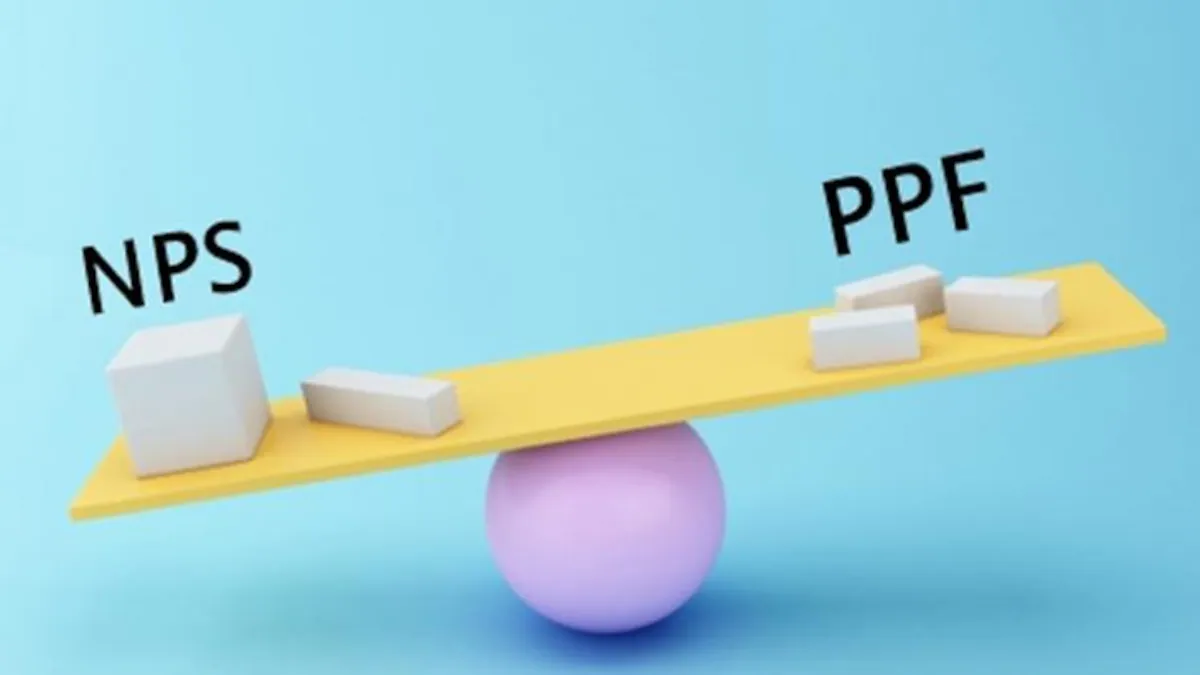Explore the Rashtriya Krishi Vikas Yojana, a national initiative for agricultural development. Learn about the goals and features of this scheme, contributing to the overall progress of agriculture in India.
Rashtriya Krishi Vikas Yojana Overview
The Rashtriya Krishi Vikas Yojana was introduced by the Central Government in 2007 with the aim of fostering comprehensive development in the agriculture and allied sectors. This initiative allows states and union territories to select and implement development activities tailored to their agricultural needs.
Initially, the scheme operated with 100% central assistance until the fiscal year 2014-15. Starting from the year 2015-16, the funding structure transitioned to a 60:40 ratio between the Center and the States. This change in the funding pattern aimed to involve states more actively in agricultural development. However, union Territories continue to receive 100% grant funding under this scheme.
Rashtriya Krishi Vikas Yojana Highlights
- Name of the Scheme: National Agricultural Development Scheme
- Initiated By: Indian Government
- Beneficiary: Farmers
- Objective: Develop the agricultural esctor through the promotion of agricultural business entrepreneurship
- Year: 2023
Objective of Rashtriya Krishi Vikas Yojana
The National Agricultural Development Scheme aims to foster comprehensive development in agriculture and related sectors. The key objectives include:
Promotion of Agricultural Business Entrepreneurship:
– Encouraging and supporting entrepreneurs in the agricultural business domain.
- Development of Agricultural Infrastructure:
– Creating robust infrastructure to benefit agriculture, including facilities for quality inputs, storage, and market access.
- Ensuring Access to Quality Inputs:
– Facilitating farmers’ access to high-quality inputs essential for agricultural productivity.
- Enhancing Storage Facilities:
– Developing storage facilities to preserve agricultural produce efficiently.
- Facilitating Market Access:
– Improving avenues for farmers to access markets effectively, ensuring fair opportunities for selling their produce.
- Tailoring Schemes to Farmers’ Needs:
– Designing and implementing schemes that are customized to meet the specific needs of farmers.
- Income Generation for Farmers:
– Encouraging and supporting farmers to diversify and adopt practices that lead to increased income.
- Effective Agricultural Sector Development:
– Ensuring the overall growth and development of the agricultural sector through strategic initiatives.
- Improvement of Farmers’ Economic Conditions:
– Elevating the economic conditions of farmers by implementing measures that enhance productivity and income.
Benefits of Rashtriya Krishi Vikas Yojana
– Launched by the Central Government in 2007 to ensure overall development in agriculture and related sectors.
- States and union territories can choose development activities.
- Implemented during the 11th and 12th Five Year Plans.
- Funding pattern shifted to 60:40 (Center: States) from 2015-16.
- Union Territories receive 100% grant.
- Projects require detailed project reports (DPRs), with third-party DPRs for budgets exceeding Rs 25 crore.
- Projects should not replicate existing state or central government initiatives.
- Annual physical and final targets set for each project in the DPR.
Components of Rashtriya Krishi Vikas Yojana
- Regular RKVY-RAFTAAR (Infrastructure/Asset):
– States can utilize 20% of their 70% outlay for pre-harvest infrastructure and 30% for post-harvest infrastructure.
– States have the flexibility to choose projects based on grassroots needs.
- Regular RKVY-RAFTAAR Value Addition Linked Production Projects:
– 30% of the 70% share will be allocated for State Value Addition Agribusiness Projects.
– Aims to increase farmers’ income through value addition in various agricultural and related fields.
- Regular RKVY-RAFTAAR Flexi Funds:
– 20% of the 70% share can be used for new activities in agriculture and related sectors.
- RKVY – RAFTAAR Special Sub Scheme:
– Various sub-schemes aligned with national priorities will be implemented.
– Focus on micro-irrigation, post-harvest management, and addressing drought-affected districts.
– Unused funds from sub-schemes will be allocated to the regular RKBY fund.
- Agricultural Entrepreneurship Development:
– Development of agricultural entrepreneurs with a separate budget.
– Skills development and financial assistance for establishing enterprises.
- Promotion of Farmer Producer Organizations (FPOs):
– Promotion of FPOs through various schemes.
– Subsidies provided to FPOs, especially those with 500 or more farmers.
Rashtriya Krishi Vikas Yojana Project Report
For detailed information and project reports, states can refer to the format provided by the Central Government and follow the evaluation process by the State-Level Project Screening Committee. The final approval rests with the State-Level Sanctioning Committee.
Implementation of National Agricultural Development Plan
- Nodal Agency:
The Agriculture Department will serve as the nodal agency for implementing the National Agricultural Development Scheme.
- State Level Implementation Agency:
Each state will establish a state-level implementation agency for effective implementation.
2% of the state’s budget allocation will be allocated to the implementation agency.
- State Agriculture Plan and Infrastructure Development:
The implementing agency will formulate the State Agriculture Plan and State Agriculture Infrastructure Development Plan.
- District Agriculture Plan:
The State Level Implementing Agency will provide the District Agriculture Plan.
- Responsibilities of Implementing Agency:
The implementing agency will oversee the successful execution, implementation, and evaluation of the scheme.
Management of the state’s allocated budget will be the responsibility of the implementing agency.
| Utilization certificates will be submitted through the implementing agency. |
Funding under National Agricultural Development Scheme
- 50% of the annual allocation will be provided as the first installment to the states.
- Funds will cover approved projects, implementation of new projects, and continuation of ongoing projects.
- If the approved project cost is less than the annual outlay, up to 50% of the approved project cost will be released.
- The second and final installment of 50% will be considered for release under specific conditions.
Conditions for Second Installment Release:
- Submission of 100% utilization certificate for the first installment.
- Minimum 60% spending under the first installment.
- Submission of a performance report.
Rashtriya Krishi Vikas Yojana administrative expenses
- States can utilize 2% of the budget for administrative expenses.
- This includes payments to consultants, recurring expenses, staff costs, etc.
- No permanent employment or vehicle purchases are allowed based on this allocation.
- Additionally, 5% of the budget can be used for preparing detailed project reports (DPRs).
The nodal department must ensure accurate account maintenance throughout the implementation of the Rashtriya Krishi Vikas Yojana.
Monitoring and Evaluation under National Agricultural Development Scheme
- Web-Based Management Information System:
– A web-based management information system has been established for effective monitoring and evaluation of the scheme.
– Project data will be submitted online, ensuring timely updates and information availability.
- Dedicated Cell:
– A dedicated cell will be set up to oversee the implementation of the National Agricultural Development Scheme.
- Geo-Tagging:
– Geo-tagging of all projects and properties will be implemented to enhance location-based monitoring.
- Third-Party Evaluation:
– 25% of the sub-projects approved by the state will undergo evaluation and monitoring by a third-party agency.
- SLSC Decision:
– The State Level Sanctioning Committee (SLSC) will decide the action plan for monitoring and evaluation annually.
– Decisions will be based on project cost, project importance, and other relevant factors.
- State-Level Monitoring and Evaluation:
– Every state will conduct monitoring and evaluation activities.
– 2% of the state-provided budget will be allocated for these activities.
- National-Level Monitoring:
– The Department of Agriculture Cooperation and Farmer Welfare will oversee monitoring and evaluation at the national level.
|
Agriculture Related Departments under Rashtriya Krishi Vikas Yojana: – Crop Husbandry – Horticulture – Animal Husbandry and Fisheries – Dairy Development – Agricultural Research and Education – Forestry and Wildlife – Plantation and Agricultural Marketing – Food Storage and Warehousing – Soil and Water Conservation – Agricultural Financial Institutions – Other Agricultural Programs and Cooperation |
Eligibility and Inter State Fund Allocation
- All states in the country are eligible to benefit from the scheme.
- Central Government will contribute 60% of the funds, and the State Government will contribute 40%.
- For North Eastern and hilly states, the funding pattern is 90% by the Central Government and 10% by the State Government.
- Union Territories will receive 100% funding from the Central Government.
Important documents to apply under State Agricultural Development Scheme
- Aadhar card
- Address proof
- Income certificate
- Proof of age
- Passport size photograph
- Mobile number
- Email ID, etc.
Process to apply under National Agricultural Development Scheme
- Visit the Official Website:
Navigate to the official website of Rashtriya Krishi Vikas Yojana.
- Access the Home Page:
Once on the website, the home page will be visible.
- Click on “Apply Now”:
Look for the “Apply Now” option on the home page and click on it.
- Fill in the Application Form:
The application form will appear on your screen. Enter all the necessary information as prompted in the form.
- Upload Important Documents:
Upload all the required documents as specified in the application process.
- Click on “Submit”:
After completing the form and uploading documents, click on the “Submit” option.
Process to view the list of State Nodal Officer
- Visit the official website of Rashtriya Krishi Vikas Yojana.
- Look for the option “State Nodal Officer” and click on it.
- A new page will display the list of State Nodal Officers.
Process to view contact details
- Visit the official website of Rashtriya Krishi Vikas Yojana.
- Look for the “Contact Us” option and click on it.
- A dialogue box will open on your screen displaying the contact details.
FAQs on Rashtriya Krishi Vikas Yojana
What is the Rashtriya Krishi Vikas Yojana (RKVY)?
Rashtriya Krishi Vikas Yojana (RKVY) is a centrally sponsored scheme in India aimed at promoting agricultural development. It provides financial assistance to states and union territories for various agricultural initiatives.
What are the objectives of RKVY?
The primary objectives of RKVY include increasing agricultural production, improving the livelihoods of farmers, promoting sustainable farming practices, and strengthening agricultural infrastructure and marketing.
What are the areas covered under RKVY?
RKVY covers a wide range of activities related to agriculture and allied sectors, including crop production, horticulture, animal husbandry, fisheries, agri-marketing, and post-harvest management.
Who is eligible to apply for RKVY assistance?
State governments, union territories, and various agencies responsible for agricultural development are eligible to apply for RKVY assistance to implement projects and initiatives in their respective regions.
How to apply for RKVY assistance?
Eligible entities can apply for RKVY assistance by submitting project proposals to the concerned state or union territory government's agriculture department. These proposals are then evaluated and approved based on their alignment with RKVY objectives.
What are the different types of projects that can be funded under RKVY?
RKVY funds a wide range of projects, including those related to crop diversification, organic farming, irrigation infrastructure, agri-extension services, and technology adoption, among others.
What are the benefits of RKVY?
The benefits of RKVY include increased agricultural productivity, improved income for farmers, enhanced infrastructure, technological advancements, and overall growth in the agricultural sector, contributing to food security and rural development.
What is the Rashtriya Krishi Vikas Yojana (RKVY)?
RKVY is a flagship scheme of the Government of India for the development of agriculture and associated sectors. It aims to promote sustainable and inclusive growth in the agricultural sector by increasing productivity, improving market access, and providing income support to farmers.
Who implements the RKVY scheme?·
RKVY is implemented by the Ministry of Agriculture and Farmers' Welfare.
What are the focus areas of RKVY?·
RKVY covers various sub-sectors of agriculture, such as crop production, horticulture, animal husbandry, fisheries, and agroforestry.
Does RKVY provide support for research and extension services?
Yes, RKVY provides financial assistance for the development of agricultural research and extension services, as well as for the conservation and development of natural resource
What Are the Four Components of the Rashtriya Kisan Vikas Yojana?
1) making farming infrastructure stronger 2) giving farmers more information and help 3) doing research to improve farming, 4) making sure there are enough good seeds.
What Percentage of Annual Growth Did NDC Plan to Achieve During the 11th Five Years (2007-2012) Plan?
From 2007 to 2012, the NDC wanted the farms to grow 4% every year during the 11 Five Year Plan.
When Was the National Agriculture Development Scheme Started?
It was started in 2007
What Is the Share of the Central Government in Rashtriya Krishi Vikas Yojana (RKVY)?
The scheme encourages convergence with other programmes such as NREGS. The pattern of funding is 100% Central Government Grant.
Which Scheme Is Called Krishi Yojana in India?
Many programmes exist in India with the goal of assisting farmers and fostering rural development; some of these programmes go by the name Krishi Yojana. The Pradhan Mantri Krishi Sinchai Yojana (PMKSY) is one of these programmes. Its primary goals are to enhance irrigation systems and encourage farmers to utilise water efficiently.
Conclusion
Overall, the Rashtriya Krishi Vikas Yojana (RKVY) is a scheme that addresses a wide range of issues facing agriculture and associated sectors in India. The project aims to promote sustainable and inclusive growth in the agricultural sector by increasing productivity, improving market access, and providing income support to farmers. Rashtriya Krishi Vikas Yojana is not only reviewed at various levels but also monitored to ensure its effectiveness and efficiency. To avail of the facilities of the project you can connect with Vakilsearch, for more legal advice.










